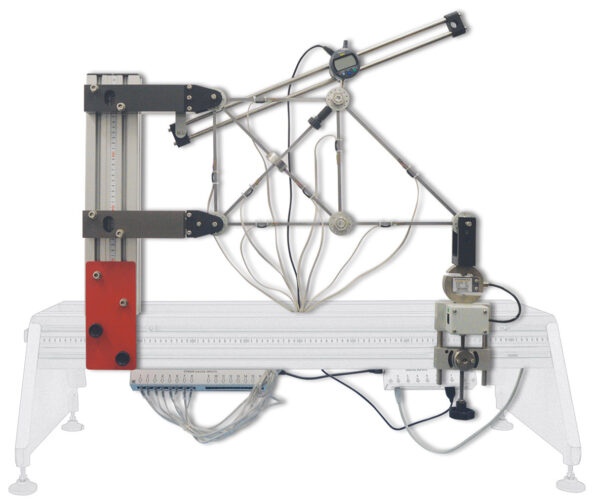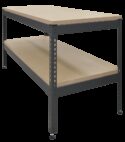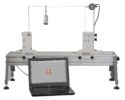Experimento
STS17

Redundant Truss (Next Generation Structures)
Experiment for the study of determinate and indeterminate truss structures. Mounts on the Structures platform and connects to the Structures automatic data acquisition unit and software.
If you have any questions or you'd like to discuss a product, please call us.
+44 1159 722 611Redundant Truss (Next Generation Structures)
One of a range of experiment modules that fit to the Structures platform (STS1, available separately), this
product helps students to understand the analysis of statically determinate and indeterminate truss structures made from a number of ‘members’ held together by joints at their ends. Two supports hold the truss. One support allows rotation only and the other allows rotation and translation. Students apply a load to the truss at the free end Joint Boss. Strain gauges on each truss member measure the forces due to the load. A precision indicator measures the framework defl ection due to the load. A hand-operated load cell assembly applies and measures the load. A simple thumbscrew engages and disengages an extra ‘redundant’ member.
Students apply loads to the truss initially without the extra ‘redundant’ member engaged. This frame is stable and statically determinate (can be solved by static equilibrium). They then engage an extra ‘redundant’ member, making the frame statically indeterminate, requiring a more advanced analysis such as the strain-energy method. Students may measure the deflection of the frame for both cases and compare.
Students use textbook equations and methods to predict the forces in each ‘member’, comparing them with the measured results. This helps confi rm the reliability of the textbook equations and the accuracy of the experiment results.
The strain gauges connect to a strain gauge amplifier, which connects (with the load cell) to the interface hub of the Structures platform for computer display and data acquisition.
Learning outcomes
• Strain gauges as instruments
• Forces within and defl ections of a truss structure that is statically:
> determinate
> indeterminate
• Member forces by the method of joints and method of sections
• Member forces by the use of the strain/energy method
• Advantages and disadvantages of both versions of the truss












